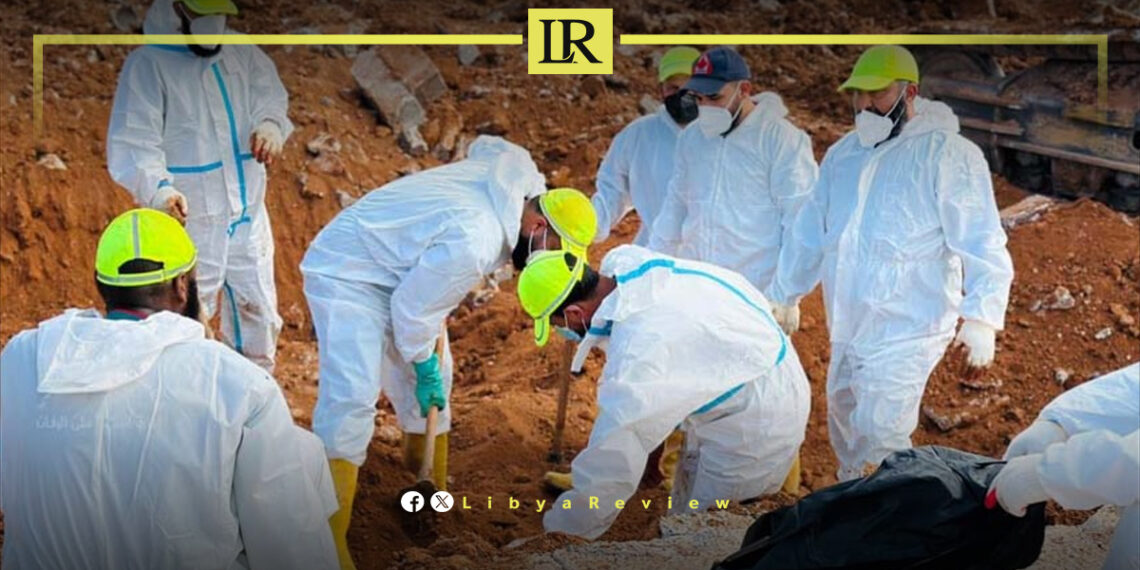The General Authority for the Search and Identification of Missing Persons in Libya has confirmed the identification of 17 victims of Storm Daniel in Derna through DNA testing.
In an official statement, the authority said that the results were approved during a meeting of the scientific committee headed by Kamel Al-Siwi. Technical reports confirmed a match between the collected samples and the genetic profiles of the victims, following a comprehensive verification process.
The identified bodies were among those previously classified as unidentified. The authority added that the approved results have been referred to the Office of the Attorney General to complete the necessary legal procedures before handing over the remains to their families.
Thousands of people were killed or went missing when Storm Daniel struck eastern Libya in September 2023, causing two dams to collapse and sweeping entire neighborhoods into the sea. Derna was the worst-hit city, where recovery teams continue to search for missing persons more than a year later.
The General Authority continues its work to identify victims through DNA analysis and family sample matching, as part of ongoing national efforts to document and bring closure to affected families.
Libya has been in chaos since a NATO-backed uprising toppled longtime leader Muammar Gaddafi in 2011. The county has for years been split between rival administrations.
Libya’s economy, heavily reliant on oil, has suffered due to the ongoing conflict. The instability has led to fluctuations in oil production and prices, impacting the global oil market and Libya’s economy.
The conflict has led to a significant humanitarian crisis in Libya, with thousands of people killed, and many more displaced. Migrants and refugees using Libya as a transit point to Europe have also faced dire conditions.
The planned elections for December 2021 were delayed due to disagreements over election laws and the eligibility of certain candidates. This delay has raised concerns about the feasibility of a peaceful political transition.
Despite the ceasefire, security remains a significant concern with sporadic fighting and the presence of mercenaries and foreign fighters. The unification of the military and the removal of foreign forces are crucial challenges.


